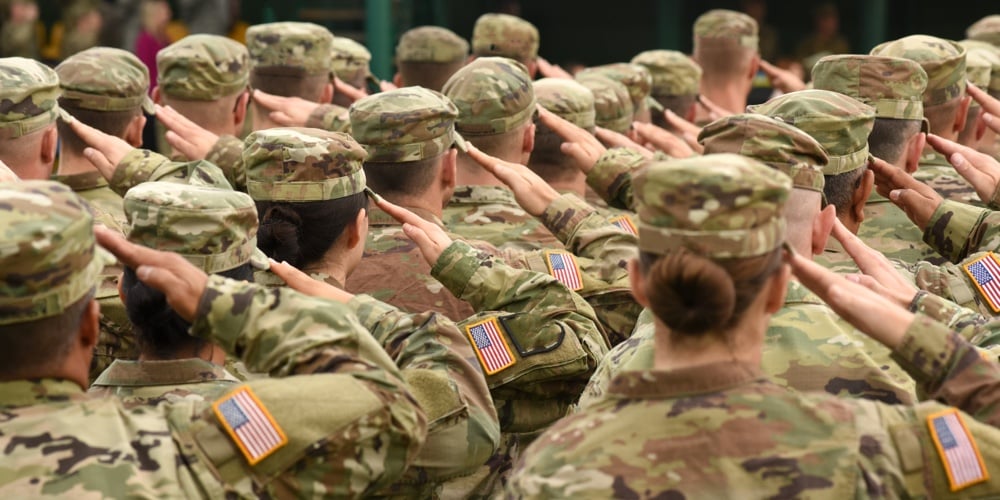Banks oppose military inclusion in America’s recovery

Last week, the NCUA approved a technical correction to 12 USC § 701.34 (2), which will now include all military members in calculations to establish Low Income Credit Union (LICU) designation. This change makes sense from a DEI perspective, given the military’s role and participation in our nation’s communities. As expected, the bank lobby strongly opposes this correction and has threatened to sue and exclude military inclusion in our nation’s economic recovery effort. I believe the banks are making a mistake.
Military families sacrifice a great deal as part of their service to our nation. The military lifestyle is characterized by frequent moves, long deployments, and guaranteed economic disruption. Yet, it is well-known that military families are a significant source of economic stability in many American communities. In fact, if you have ever observed what happens when the Department of Defense announces another round of Base Realignment and Closure (BRAC) actions, you see the substantial economic impact cited in Congressional testimony by state and local governments as they fight to keep their bases intact. Military members and the missions they perform are vital in these communities.
In terms of economic participation, military families have a role in the local economy. Like everyone else, military spouses and families must find work in the community to help pay their bills (e.g., rent, utilities, local taxes), spend in the local economy, and hopefully, save for the future. Plus, many military families are also small business owners and entrepreneurs. They perform an important role in a thriving economy both on and off the installation. You would be surprised at the amount of free enterprise taking place on the installation and in the local community.
Yet, many military families were already struggling before the current pandemic. As military spouses lost their jobs, the need became even greater. In fact, all the service relief organizations and local food banks report overwhelming requests by military members to simply put food on the table. This is happening while military members continue to defend our nation in addition to transporting vital medical supplies, constructing field hospitals, collecting test samples, and providing medical care. The mission goes on.
Underpinning this local economy and military participation are great credit unions. Credit unions are always part of the military lifestyle. In fact, many military members retain the same credit union membership throughout their careers. This is a testament to the quality of the financial products and services offered by America’s credit unions, backed by the high level of trust and confidence military members place in their financial institutions.
As a result, gaining LICU designation allows these same credit unions to access secondary capital, accept non-member deposits, and offers relief from member business lending caps—leading to more lending capability. This increase in lending capability is precisely what credit unions need as our country struggles to recover from the devastating effects of stay-at-home orders. For this reason, the Defense Credit Union Council championed this initiative and applauds the unanimous decision made by the NCUA Board to remedy this former exclusion of the military. Credit unions should always strive to help the men and women of our military who secure our liberty.
However, once again, the bank lobby is complaining and threatening to sue the NCUA over its pro-military stance. Clinging to the tired rhetoric of the past, and attempting to pit large versus small credit unions, reveals an underlying contempt that undervalues our military and further obstructs consumer access to credit union service. Yet, not once in their letters and articles did the bank lobby place any emphasis on serving our military. This is no coincidence and is not a winning strategy, much less sound policy.
Banks are leaving military installations at the very time these families and communities need access to safe financial services and products most. Now the banks want to sue when these military communities, which they chose to leave, need access to capital to rebuild their local economies. Once again, banks are putting profits before service and shareholder interests ahead of consumer choice. Our nation’s military members deserve better!





